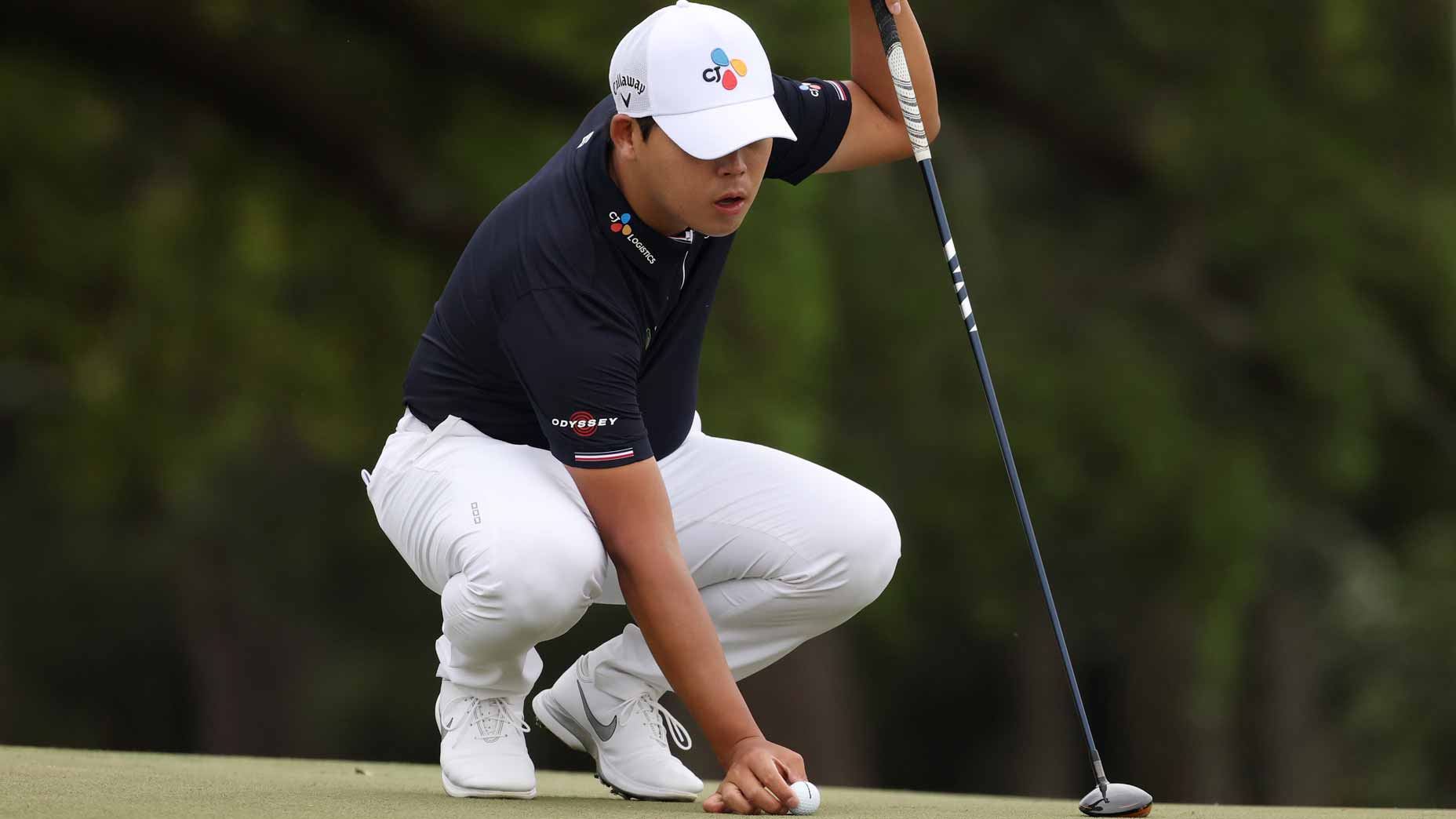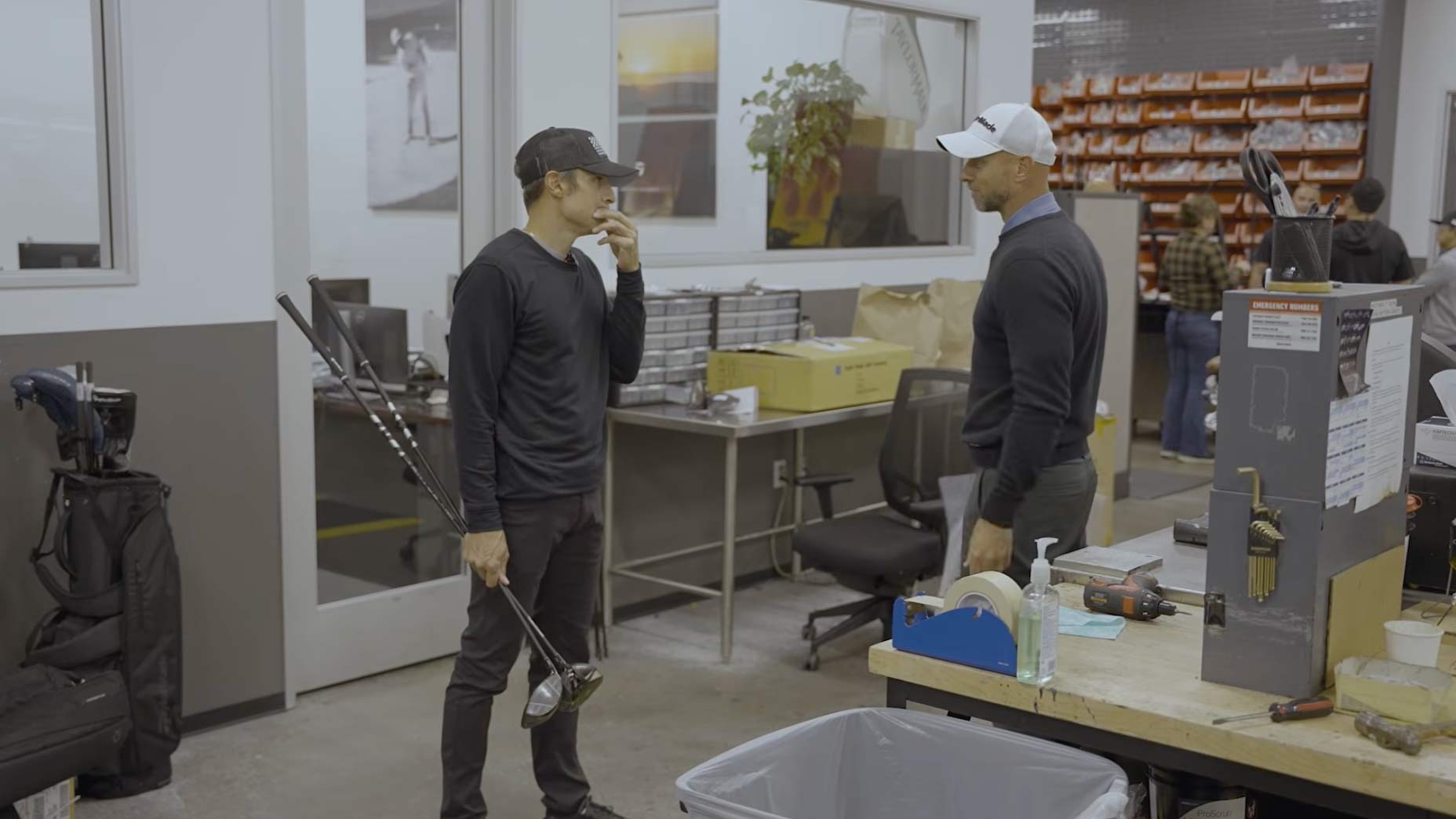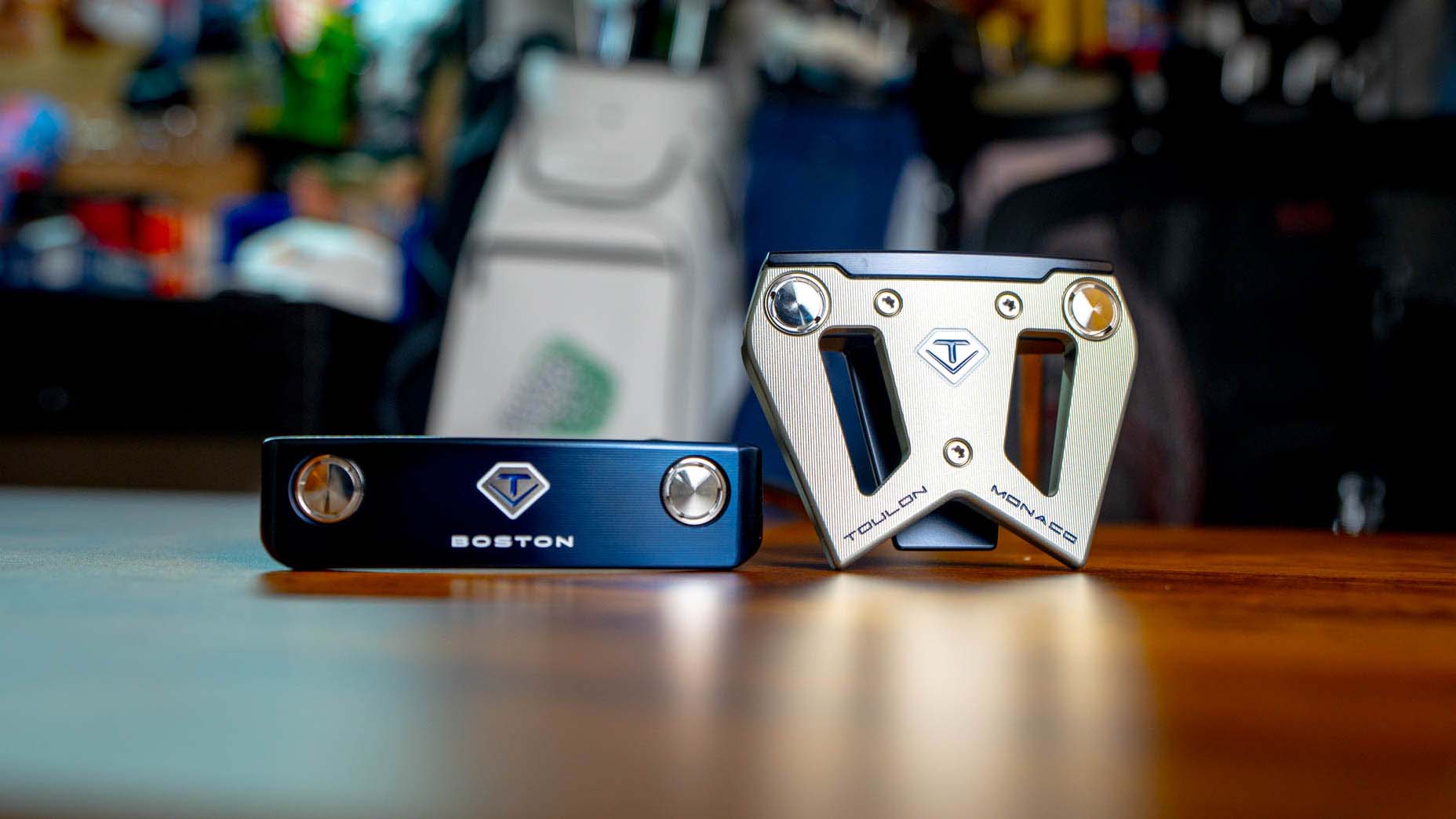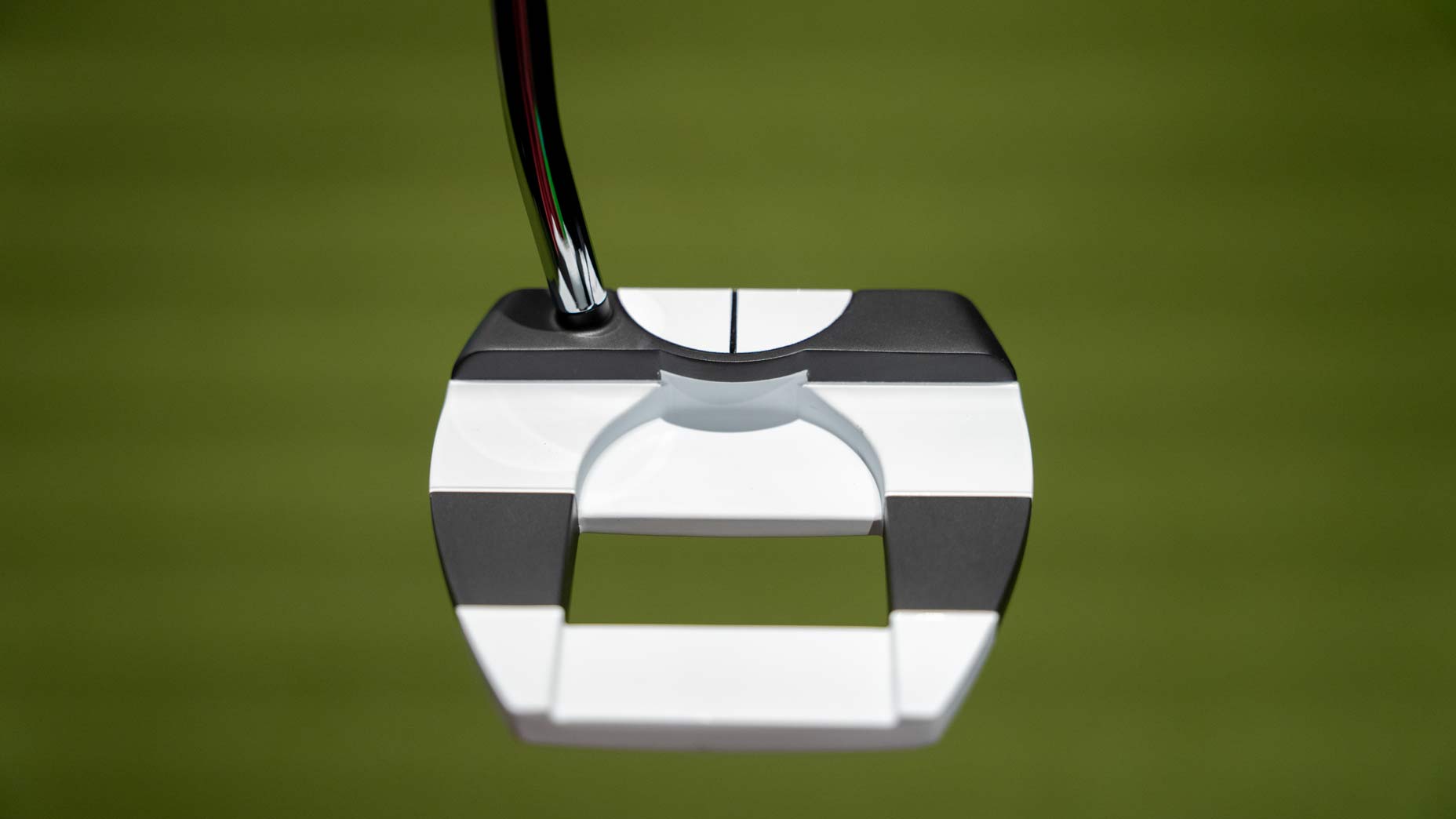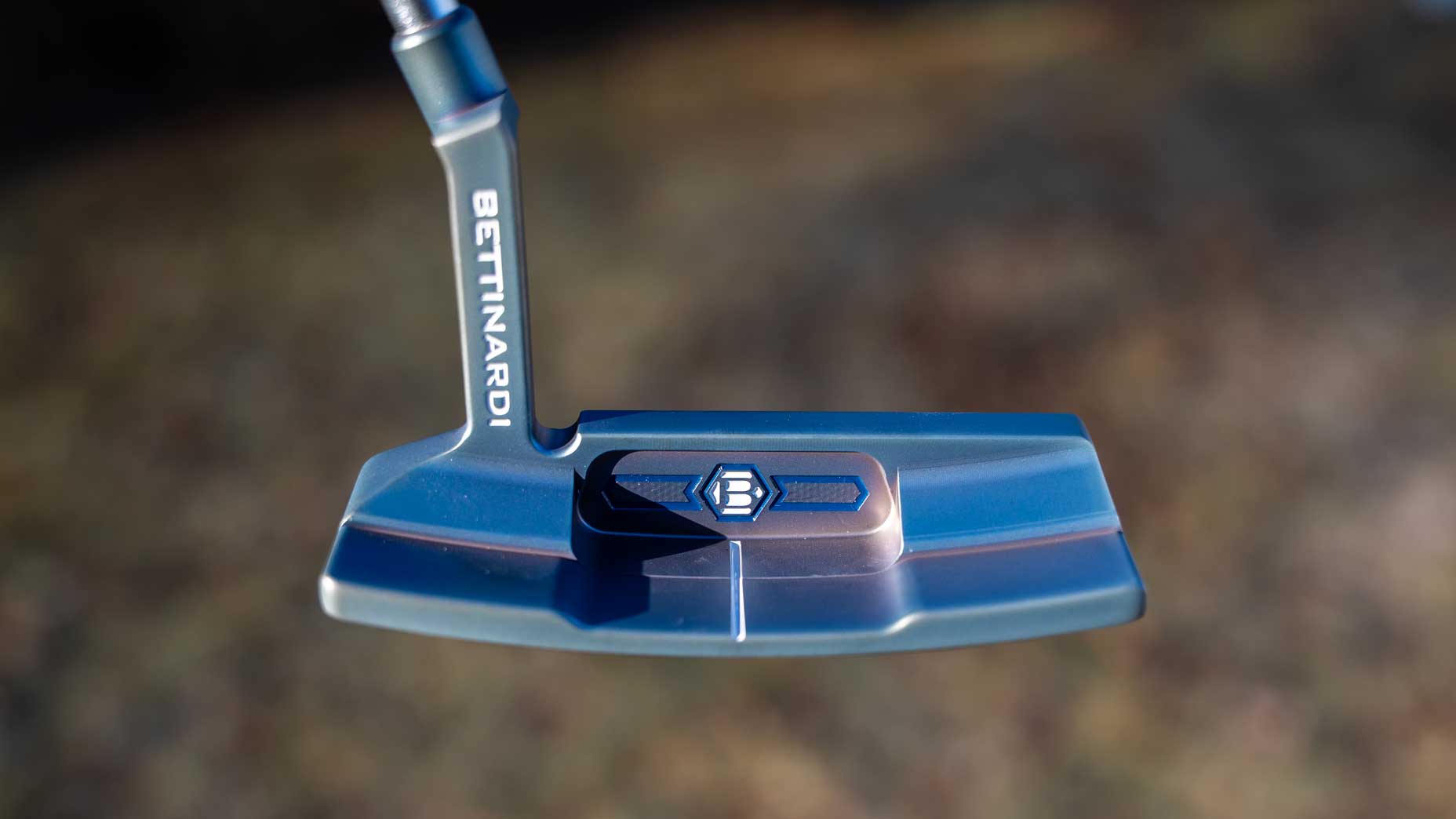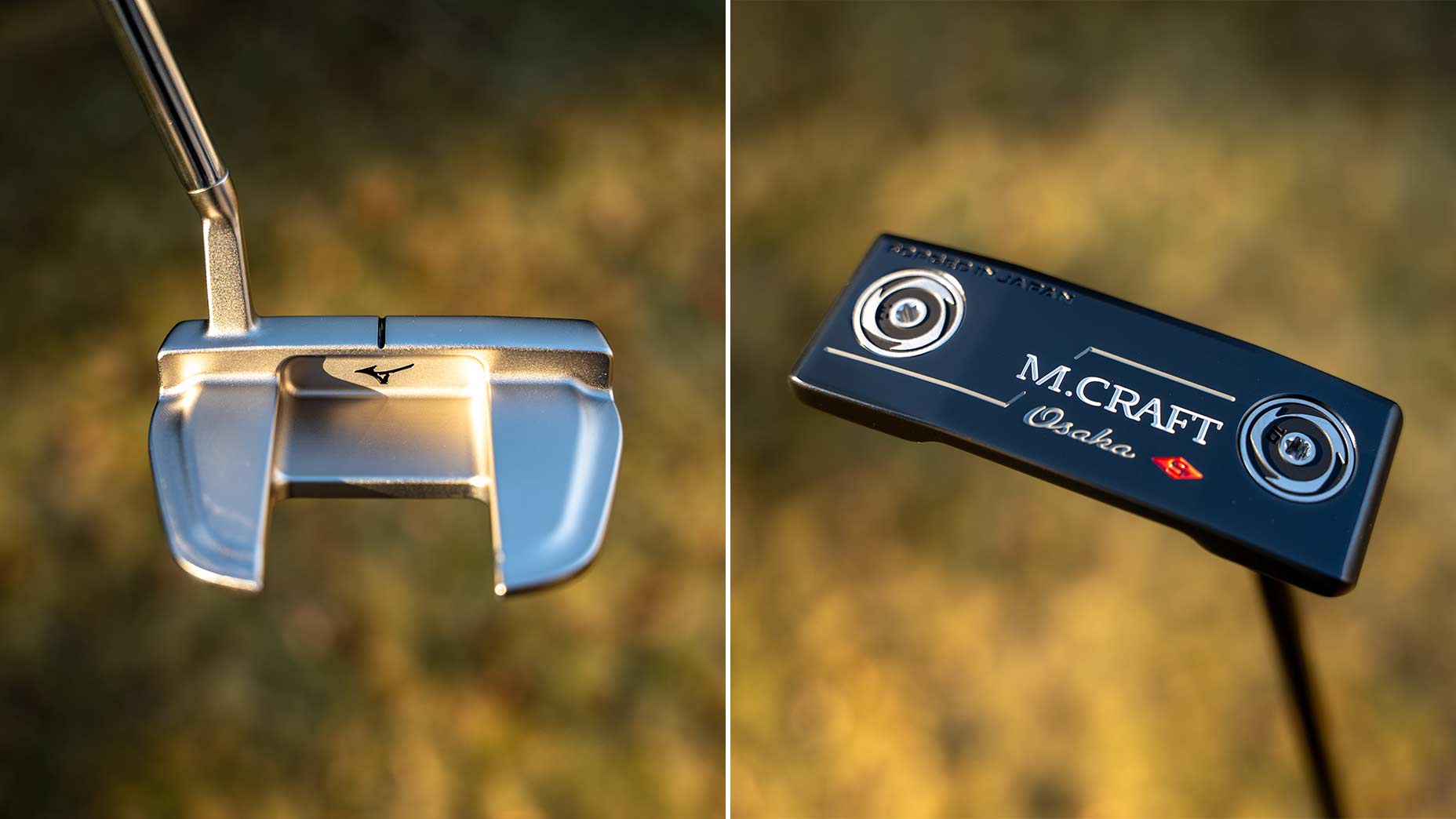Welcome to another edition of the Fully Equipped mailbag, an interactive GOLF.com series in which our resident dimplehead (a.k.a., GOLF’s managing editor of equipment, Jonathan Wall) fields your hard-hitting gear questions.
Is there data that points to one club being the preferred backup option if I damage my putter during the round?
We discussed this exact question on the latest Fully Equipped podcast following Si Woo Kim’s outburst during the second round of the Masters. After smashing his putter into the turf while standing greenside on 15, Kim looked down to find a badly damaged shaft.
The putter was now unusable.
In need of a backup option, Kim elected to use 3-wood the rest of the way and finished with four straight pars to cap off his round. Asked why he chose 3-wood over using the leading edge of a wedge, Kim said it came down to selecting a club that allowed him to control the speed on Augusta National’s quick greens.
Speaking from personal experience, I can tell you 3-wood wouldn’t be my first option. I’ll admit a fairway wood provides more effective dynamic loft and vertical impact forgiveness compared to the wedge’s leading edge, but the overall head weight — on the lighter side when compared to a putter — and ball speed variability would make it a strong no-go for someone with mediocre touch.
You’ll definitely need to do some practice, but striking the leading edge will generally produce a consistent end-over-end roll with reliable distance numbers. Take it from someone who has done this more times than he can count. It can also help improve your putting with the actual flatstick in your bag.
In the end, there really isn’t a right answer to this question, which might disappoint some of you. But I will say it wasn’t for a lack of trying.
Here’s why Si Woo Kim couldn’t replace his broken putter at the MastersBy: Zephyr Melton
Fully Equipped co-host Kris McCormack, who runs True Spec’s tour and education programs, attempted to get a general consensus from a host of instructors during a recent trip to Miami. As you could probably guess, he left with a wide range of answers.
“It was all over the place from wedges to 3-wood,” McCormack said. “I even got a couple drivers.”
So what do you do when a tiebreaker is required? Get former Fully Equipped co-host Tim Briand involved. According to Briand, who now works at Foresight Sports, driver is the best backup putter option.
“[Briand] said [driver is] the most logical choice,” McCormack said. “It has the least amount of loft, high MOI, largest surface area and easiest to control distance no matter where you hit it on the face.”
So there you have it: driver is your best option. Tiger Woods would disagree with the “The Professor,” and so would this golf scribe, but Briand is the tiebreaker. Just be prepared to make some adjustments if you’re going to putt with a 44- or 45-inch club.
An even better option: don’t get frustrated on the course and you won’t have to worry about figuring out a solution in the middle of the round. (But the correct answer is definitely wedge.)
Want to overhaul your own bag for 2021? Visit the expert fitters at our sister company, True Spec Golf. For more on the latest gear news, check out our latest Fully Equipped podcast below.

